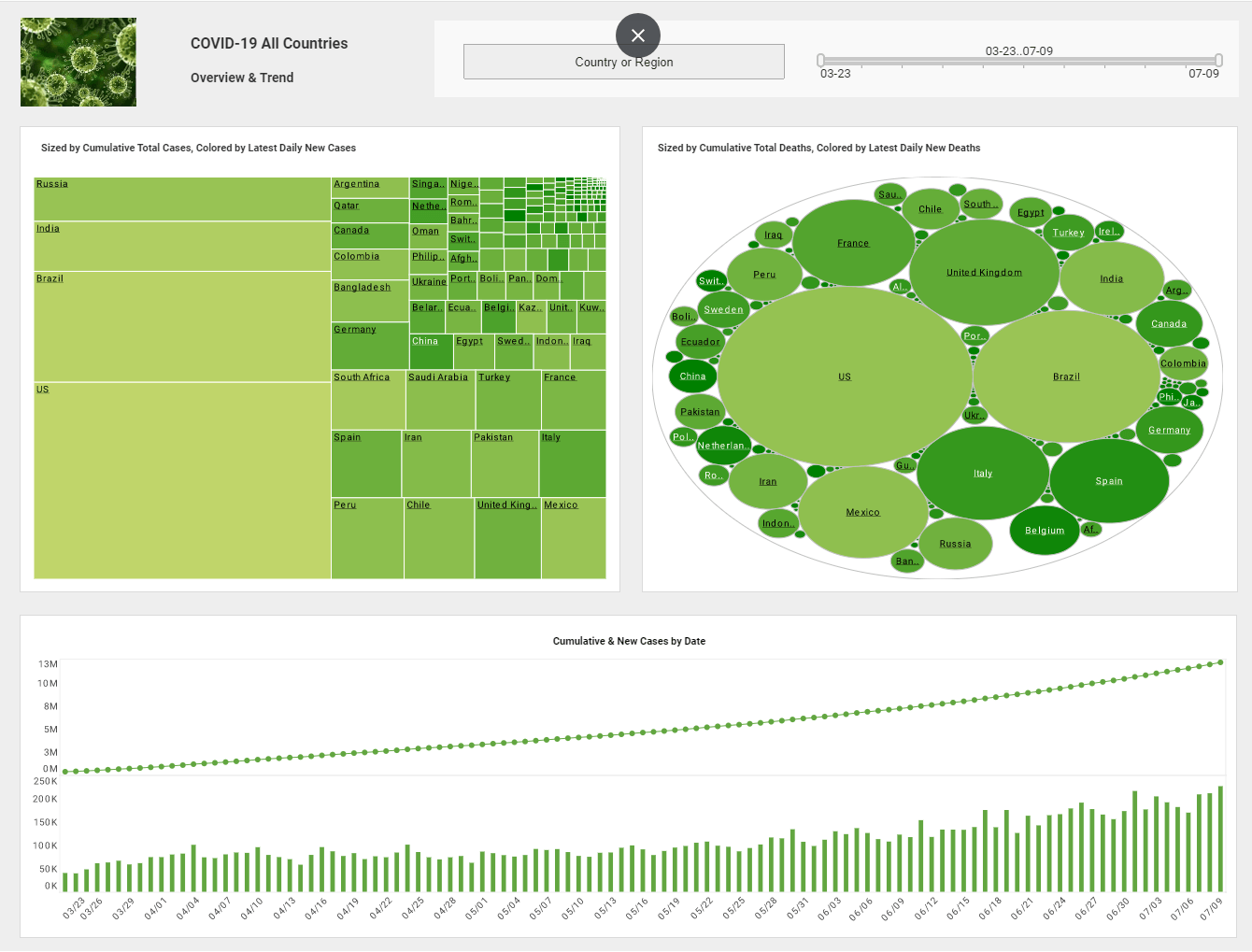What Is a Data Lakehouse and What Are Its Benefits?
The advent of the data lakehouse has revolutionized the way corporations handle their data, allowing for a more efficient and comprehensive approach. This contemporary design combines data lakes with data warehouses to provide a single data repository with unmatched flexibility, cost-efficiency, and sophisticated analytics.
We will go into the idea of a data lakehouse and examine its many advantages in this article.
| #1 Ranking: Read how InetSoft was rated #1 for user adoption in G2's user survey-based index | Read More |
Centralized Data Repository
The data lakehouse's function as a centralized data store is at its core. A data lakehouse, in contrast to conventional compartmentalized techniques, gathers all of an organization's data, both organized and unstructured, into one readily accessible area. This centralization facilitates a more streamlined and effective data management process by making it easier to obtain and analyze data from many sources. Organizations may have a thorough understanding of their information environment and make better decisions by dismantling data silos.
Flexibility for Structured and Unstructured Data
The ability of a data lakehouse to handle both organized and unstructured data is one of its most notable properties. Conventional data warehouses are great at handling structured data, but they often have trouble handling the unstructured data that's prevalent in today's data environment. On the other hand, a data lakehouse carries over the adaptability of data lakes, enabling businesses to easily store and handle unstructured data. Strategic coupling within a wider data storage and management system allows firms to get insights from a variety of data kinds, enabling innovation and adaptation to changing business needs.
Cost-Efficiency Through Automation
An important factor in determining data management strategy is cost. Because of their ability to automate processes, data lakehouses are more affordable than typical data warehouses. Scaling requires less human labor and resources since additional data sources can be integrated automatically. This automation speeds up data onboarding and helps the company extend its data infrastructure, which is crucial in today's digital world.
ACID Transactions
Effective data management requires maintaining data consistency and integrity, which cannot be compromised. This essential need is met by data lakehouses, which provide ACID transactions—Atomicity, Consistency, Isolation, and Durability. These characteristics guarantee that, even in the case of system outages or disruptions, transactions are carried out dependably and the data is kept constant. Data lakehouses are dependable for essential business processes and applications because they integrate ACID transactions.
Real-Time Reporting and Analysis
Real-time data access and analysis is an important benefit in this age of fast decision-making. Data lakehouses provide real-time reporting and analysis for companies by enabling data streaming. This is especially useful for recognizing developing trends, monitoring important performance metrics, and adjusting to changing market circumstances. The real-time component increases an organization's agility and helps it remain ahead of the competition.
Simplicity in Data Management
Data lakehouses are distinguished from intricate, compartmentalized infrastructures by the ease of data handling. Simplifying the business data architecture as a whole is achieved by having a single system for handling various applications and data kinds. Analysts gain from a unified environment that eliminates the need for them to switch between different systems as they refine and evaluate data. This simplicity helps create a more responsive and flexible data environment in addition to improving operational efficiency.
Improved Data Governance
A crucial component of contemporary data management is data governance, particularly when it comes to ethical and legal issues. By automating compliance processes, a data lakehouse design makes sure that data governance principles are followed uniformly across the whole data environment. In addition to lowering the possibility of human mistake, automation gives businesses the assurance that their data practices comply with legal requirements. A data lakehouse's improved data governance promotes confidence in the quality and dependability of data.
Cross-Platform Compatibility
Cross-platform interoperability is a strength of data lakehouses, enabling users to collaborate with data using a range of tools and technologies. Data lakes allow users to access and interact with data from almost any platform or tool, unlike conventional data warehouses. This flexibility allows enterprises to pick the finest technologies, creating a more diversified and adaptable data ecology.
 |
Learn about the top 10 features of embedded business intelligence. |
Adaptability to Unstructured Data
Not all insightful data in today's environment is well organized. Since data lakes are the foundation of data lakehouses, they are excellent at managing unstructured data. Organizations are dealing with a growing variety of data forms, such as text, photos, and videos, therefore flexibility is essential. Data lakehouses may aggregate and analyze unstructured and structured data to get full insights from an organization's data assets.
Resource Allocation Elasticity
Scalability and resource allocation flexibility go hand in hand. Organizations may distribute resources dynamically according to their requirements by using data lakehouses. Data lakehouses' elastic nature allows enterprises to easily scale computational resources for demanding analytical operations or increase storage capacity to meet rising datasets. This allows for real-time infrastructure adaptation. This helps to keep costs down while also allowing businesses to manage different workloads without sacrificing productivity.
Unified Analytics Environment
A unified analytics environment that allows users to switch between various analytical procedures with ease is provided by data lakehouses. They may use business intelligence tools for reporting and complicated machine learning algorithms for predictive analytics in the same repository. This combination improves cooperation and simplifies managing numerous data platforms, creating a more efficient and synergistic analytics environment.
Enhanced Data Quality Management
For firms that depend on data-driven decision making, data quality is crucial. Data lakehouses use elements that improve data quality management in order to meet this challenge. Data lakehouses make sure that the data is correct, dependable, and complete by using automated procedures for data cleaning, validation, and profiling. This dedication to data quality from input to analysis reassures consumers that insights are based on reliable data.



